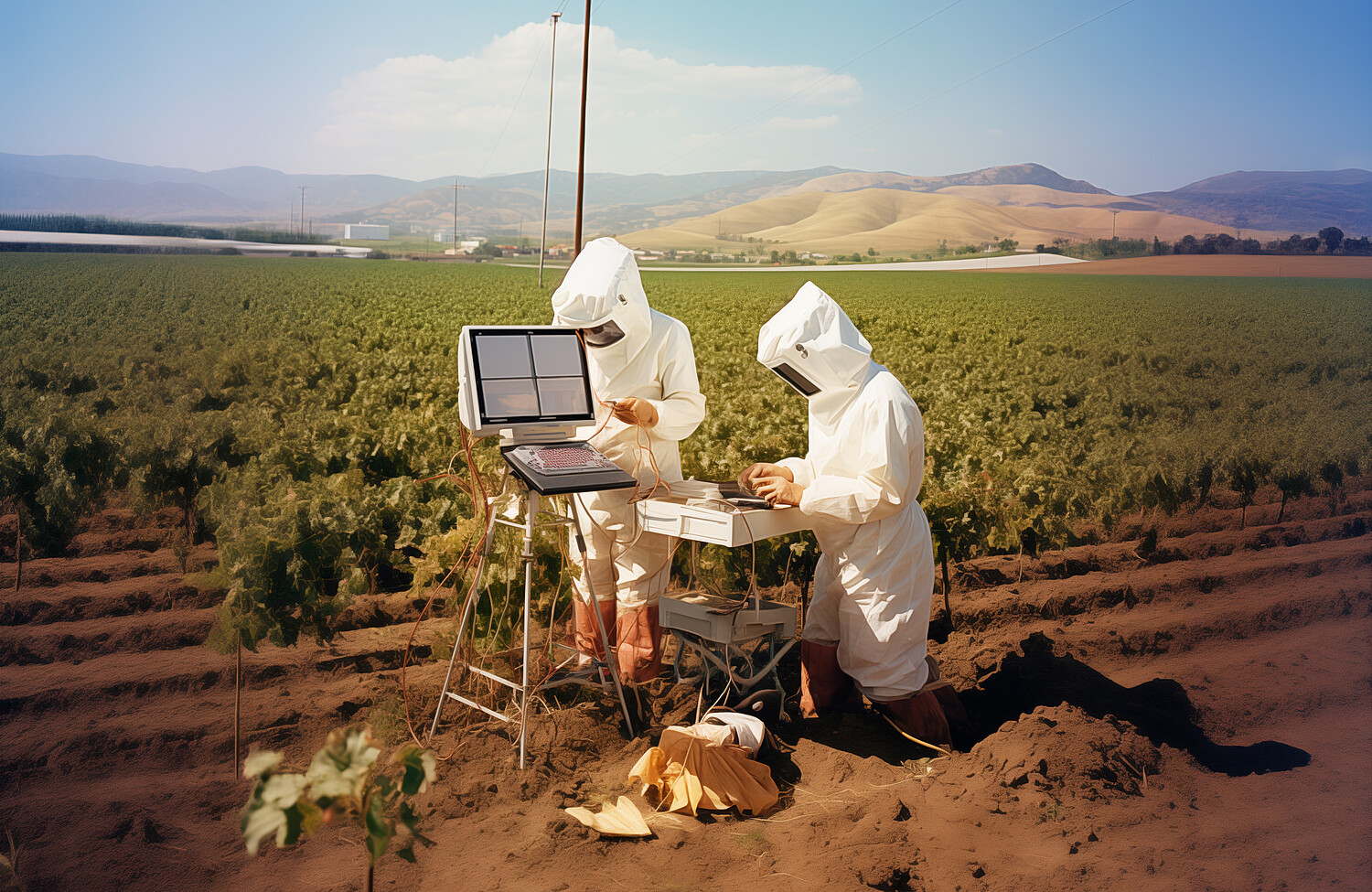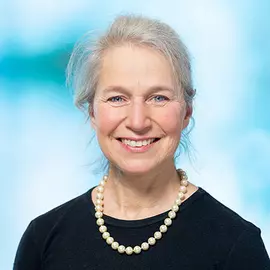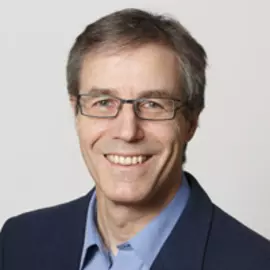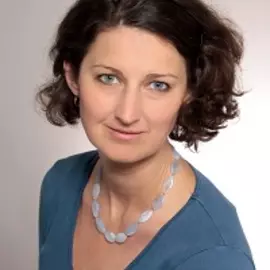
Research that helps society rather than simply being filed away
Are researchers finished with their work upon the results being published, or should they also take care of how their findings are implemented? ZHAW employees talk about how they contribute to society and sometimes come up against barriers.
A great deal of research has already been conducted into what a climate-friendly diet should look like: fewer animal-based products and more high-quality plant-based foods. Christine Brombach, a Professor of Consumer Science at the School of Life Sciences and Facility Management, says that farmers would have to receive compensation payments in order for them to be able to adjust their production accordingly. As a co-author of the German-language scientific publication “Wege in die Ernährungszukunft der Schweiz,” which addresses issues relating to a sustainable food system, she has presented ideas to political representatives. Little has happened up to now, however, she says regretfully. Given that time is of the essence if we are to achieve the UN Sustainable Development Goals by 2030, she finds this frustrating.
The fact that scientific findings are often only implemented very slowly or not at all is an issue that the lecturer is very concerned about. Brombach vehemently believes that “universities of applied sciences in particular, with their application-oriented approach, have an immense task when it comes to introducing established facts of social relevance in the right places.” At the same time, however, she is also well aware that changing ingrained habits takes time. The professor says that the topic of food is an especially personal and emotional matter, stating that “everyone has to eat and has the feeling that they’re an expert on the topic.”

“Sharing well-founded and application-related knowledge is a matter close to my heart.”
Brombach points out that it is also a complex and extensively networked system. How we eat affects numerous areas of life and the environment. The researcher utilises various opportunities so as to ensure that the results of her research are utilised in society: she also appears frequently in the media as a source of information, gives presentations at conferences and is also involved in a German-language cookbook called “Klimatopf,” which is aimed at private households. She emphasises that “measures are required at both an individual and a relationship level.” “Sharing well-founded and application-related knowledge is a matter close to my heart, and I invest a lot of time in this.”
Too hasty with Alpine solar plants
Renewable energies are another hot topic being researched in Wädenswil. Under the rubric of "Solar express", Switzerland has recently been pushing ahead with the expansion of its solar installations, not only on roofs, but also in mountain areas. With a test installation in Davos, the Renewable Energies Research Group has demonstrated over the past five years that Alpine solar plants generate up to four times more electricity in winter than those located in lowland areas. The project also revealed how and where the installations are best positioned. Project leader Jürg Rohrer presented these results to the authorities and politicians. He also suggested that a list of criteria be put together at a federal level, which should also include aspects such as biodiversity, proximity to existing infrastructure and visual factors. The professor shares, however, that his input sadly fell on deaf ears. “The view everywhere was that they now only want to focus on speed.”

“For something to change, you need to take small consistent steps towards achieving this.”
In the meantime, various large projects, including the one in Grengiols in the canton of Valais, have had to be significantly redimensioned. On the Bernina Pass in Poschiavo, EWZ pulled out due to the threat of objections from environmental associations. “Had we taken a month or two longer to organise the whole thing more carefully, we wouldn’t now find ourselves in this situation,” says a deflated Rohrer.
Staying power required
He also dedicates some of his free time to ensuring that urgent issues receive the public attention they deserve. He has given a total of around 80 interviews on the topic of alpine solar installations, for example. In doing so, he has also emphasised the fact that electricity-saving measures offer potential approximately ten times greater than that offered by photovoltaics in mountain regions. Rohrer regretfully reports, however, that this aspect has failed to appear in almost any of the articles. “It seems that the media chiefly want to cater to the culture of outrage.”
Although he wouldn't describe himself as someone you’ll often find with a glass of champagne in his hand at drinks receptions, he does maintain numerous contacts with people from the political sphere and associations. He is well aware that in the environment and climate segment, success can never be clearly attributed to a single research project. “For something to change, you need to take small consistent steps towards achieving this.”
Impact given too little weight
Regina Betz learned how a change of policy can undo intensive development work aimed at ensuring effective climate protection shortly before the target is reached. This experience came about in connection with a mandate from the Australian government. The current Head of the ZHAW Center for Energy and the Environment at the School of Management and Law lived Down Under until 2010 and developed an instrument for auctioning emission rights. “Everything had been fully tested and the auction was set to be introduced in 2014,” the professor recalls. “A conservation government was then elected that cancelled everything.” While power was later once again assumed by a labour government, it did not pick up where it left off with respect to the model.

“Impact should play a role in the annual assessments of researchers.”
However, Betz has continued to benefit from the expertise she gained in this area. Last year, she published a book on the challenges of emissions trading and was able to present it at the UN Climate Change Conference in Glasgow. She also frequently speaks at conferences and in front of politicians. She would welcome it if the topic of “what impact has been achieved” were also to be addressed at the annual feedback and assessment meetings.
Adapting to the media
Mobility researcher Thomas Sauter-Servaes also works in an area of high social relevance. “There is certainly no lack of knowledge, but rather a lack of implementation,” says the programme director of the Bachelor’s programme in Mobility Science at the School of Engineering. It has long been known that the increase in motorised individual transport is constantly exacerbating problems such as congestion and environmental pollution.

“Breaking up routines also requires communicative tricks.”
The professor says that we need to start at the municipal level if we are to achieve a turnaround in transportation. In order to reach those responsible, he has developed the schrittmacher.in portal in collaboration with partner organisations. The visually appealing website provides municipalities with practical tips on how to make mobility offerings more sustainable. These include developing a bold, future-oriented parking concept and promoting non-mobility through the provision of good local amenities in local neighbourhoods and co-working spaces. The expert, who finds himself in great demand from the media, emphasises that “breaking up routines also requires communicative tricks.” As part of this process, he continues, you need to utilise short forms of presentation and be prepared to tolerate exaggerations. “If you really want to see progress on our roads, you can’t take yourself too seriously in your role as a scientist.”
Consigning the wasting of water to history
Another important ZHAW project is the so-called KREIS-Haus (climate and resource efficient sufficiency house). The model construction in the village of Feldbach in the canton of Zurich comprises almost exclusively natural, recycled and reused materials. Hardly any waste whatsoever is generated during its operation: faeces are collected in a dry toilet before being treated and used in the roof garden for cultivating vegetables. Lightly contaminated wastewater is cleaned directly in the building and utilised for irrigation and the washing machine. The system is continuously optimised on the basis of feedback from guests who stay in the building overnight.

"Even more could be achieved with more active communication”
The information is freely accessible to everyone on the website. There is also a podcast and a book. Initiator Devi Bühler is satisfied overall with the response to the project. Nevertheless, the research associate at the Institute of Natural Resource Sciences in Wädenswil is aware that even more could be achieved with more active communication. She is currently working on her doctoral thesis. As soon as she has more resources at her disposal, however, she wants to communicate the findings from the KREIS-Haus more widely. For example, with respect to how water wastage can be limited. The environmental engineer notes that drinking water is still used almost everywhere for flushing the toilet, something that isn't sustainable in light of the increasing scarcity of water. “The construction sector is still far too unsustainable.”
0 Comments
Be the First to Comment!